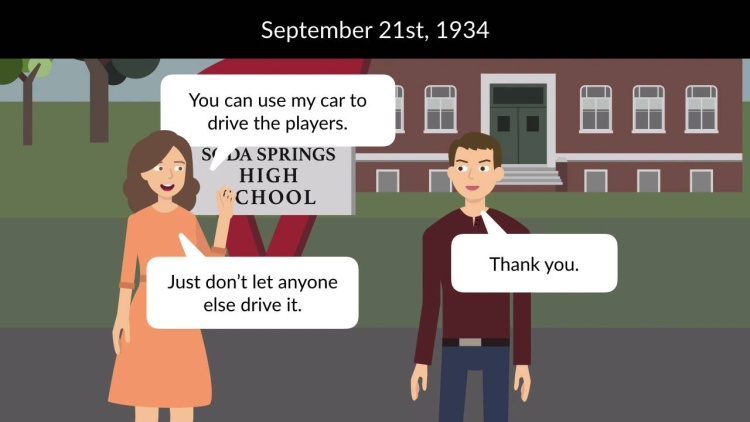Gorton v. Doty
Idaho Supreme Court
57 Idaho 792, 69 P.2d 136 (1937)
- Written by Ronald Quirk, JD
Facts
Richard Gorton, a high-school football player, was injured in an accident while riding in a car owned by Doty (defendant) but driven by Garst, the football team’s coach. The accident occurred when team members were being driven back from an away game by adult volunteers in privately owned cars. The day before the game, Doty asked Garst if he had obtained enough cars to transport the entire team. When Garst said that he needed an additional auto, Doty volunteered her car, on the condition that Garst agree to drive it. A key issue at trial was whether a principal-agent relationship existed between Doty and Garst at the time of the accident, which would result in Doty’s full liability for the actions of Garst. In an attempt to show that no agency relationship existed, Doty testified that she had merely loaned her car to Garst and that Garst did not work for Doty, nor did Garst promise Doty any compensation for use of her car. But Doty also testified that she had asked Garst whether he needed another car and said that Garst could use Doty’s car if he drove it. The jury awarded monetary damages to R. S. Gorton (plaintiff), father of Richard Gorton, finding that Garst was acting as Doty’s agent and consequently Doty was liable for the damages.
Rule of Law
Issue
Holding and Reasoning (Holden, J. )
Dissent (Budge, J.)
What to do next…
Here's why 907,000 law students have relied on our case briefs:
- Written by law professors and practitioners, not other law students. 47,100 briefs, keyed to 996 casebooks. Top-notch customer support.
- The right amount of information, includes the facts, issues, rule of law, holding and reasoning, and any concurrences and dissents.
- Access in your classes, works on your mobile and tablet. Massive library of related video lessons and high quality multiple-choice questions.
- Easy to use, uniform format for every case brief. Written in plain English, not in legalese. Our briefs summarize and simplify; they don’t just repeat the court’s language.





